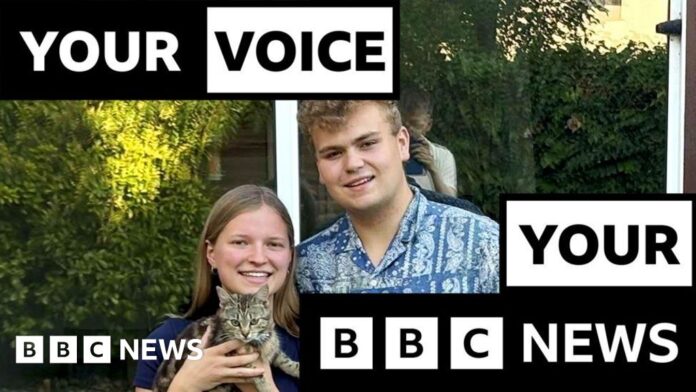 Grace Sangster & Ollie Vass
Grace Sangster & Ollie VassBBC News
The government has set out how much it is going to spend over the next four years on the public services that millions of people use every day.
That includes the NHS, schools and public transport as well as welfare benefits, armed forces, energy projects and a whole range of other government spending.
We asked a handful of readers, who had contacted the BBC via Your Voice, Your BBC News, their views and reaction to Wednesday’s announcement.
‘We earn £71,000. First-time buyers need more help’
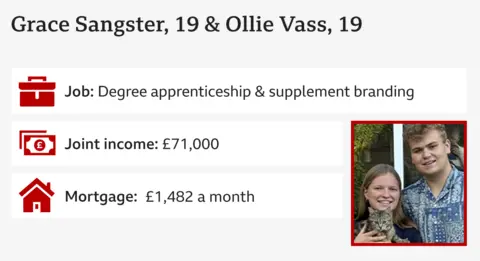
Ollie Vass, 19, works for a nutritional supplement company, where he earns £31,000. His girlfriend Grace Sangster also 19 is on an apprenticeship scheme earning £40,000.
They each started saving from the age of 13, earning money mowing lawns and working in restaurants.
In April, with the help of a small inheritance and their Lifetime ISAs, the couple completed on a £360,000 two-bedroomed terraced house near Slough.
Ollie and Grace had both wanted to see more support for young people starting out, especially first-time buyers, and more apprenticeships.
Grace’s initial reaction to the Spending Review was “it wasn’t brilliant”, but the extra NHS spending was a positive. “I hope that is to pay workers more.”
Both her and Ollie think the government announcing £39bn of spending on social housing is the wrong move.
“They [the government] have made it impossible for first-time buyers putting stamp duty up. I just think they are looking at the wrong place,” says Grace.
“They should be making it easier for lower income households to buy,” she suggests, adding: “It’s not the mortgage people cannot afford, it’s the deposit.”
Ollie says he would have liked to see the bus fare cap returned to £2 a journey from £3, and also look at subsidising rail fares, which he thinks are too expensive.
‘I earn £850 a month. Young people need better jobs’
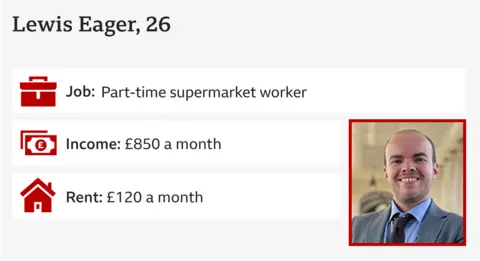
Lewis Eager, 26, works three shifts a week in the on-demand delivery service for a supermarket in Southend-on-Sea, earning £850 a month. He lives with his parents who he pays £120 a month.
He says he was “broadly happy” with the Chancellor’s Spending Review, and especially pleased with the expansion of free school meals, investment in apprenticeships and nuclear energy.
“After doing some research, I have a lot more confidence in nuclear energy,” he says, adding it will be “extremely positive” if it leads to lower bills.
When it comes to training for career, Lewis hopes employers will respond to the government’s new spending by lowering barriers to applicants.
Lewis completed a business administration apprenticeship and an Open University degree, but says he cannot find full-time work.
He estimates he has applied for more than 4,000 jobs without success.
“Getting knocked down all the time is horrible,” he says, and even entry-level jobs seem to require experience.
He sees a “looming crisis” among young people unable to get on the jobs ladder, and would like to see more money go into adult education.
Lewis says one aspect of the Spending Review he disliked was the potential for council tax rises.
‘We earn £52,500. We need more help with childcare’
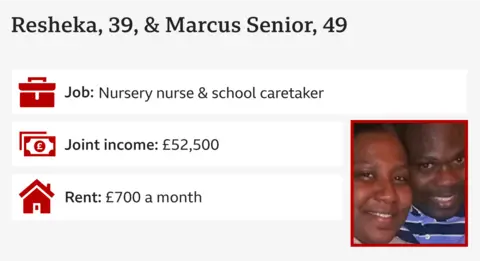
Resheka Senior, 39, is a nursery nurse and her husband Marcus, 49, a school caretaker. Between them they take home more than £50,000 a year. But the couple say they are still struggling, particularly while Resheka is on maternity leave.
When she goes back to work, Resheka says she won’t be much better off because she will have to pay for childcare before and after school for her five-year-old and all day for the younger children, aged two and nine-months.
They have debts that they are shuffling between credit cards and no prospect of moving out of their two-bedroom council flat in Woolwich, London.
“I don’t want to stay at home. I’ve been working since I was 15 years old,” says Resheka. But she would like to see more support for couples who are “making an honest living”.
“It’s not as if I’m saying I want benefits,” she says. “We’re putting back into the economy. We just need some help.”
She wants the government to pay for free breakfast and after-school clubs, or more free childcare on top of the 30 hours a week currently provided.
She told the BBC the chancellor’s announcement that free school meals would be expanded was a good thing for struggling families.
Given her son’s school already does them, Resheka didn’t think there was much else that would directly impact her circumstances.
‘My pension is £20,000. Government money needs to be spent properly’
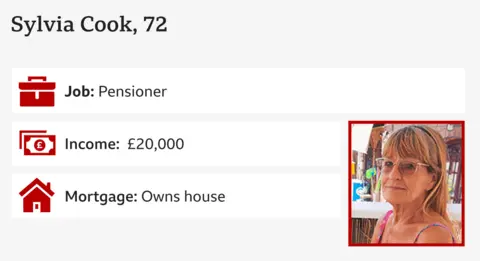
Sylvia Cook, 72, used to sell accounting software, then published books about Greece, before she retired.
Living on a pension of £20,000 means being careful with her outgoings, so she welcomes the government’s U-turn on winter fuel payments as “a good decision, if a little late”.
The extra £200 “obviously eases things”, she says.
She doesn’t disagree with the government spending more money on public services such as the NHS, but thinks more time should be spent looking at “inefficiencies” and how the money is spent.
“You can spend a lot of money and achieve nothing,” she says. “It’s got to be spent properly.”
She highlighted an example of being contacted multiple times by NHS services. “Why are they duplicating?”
She also suggests changes to the tax system, efficiency savings across government and cutting perks for MPs and civil servants.
“There are so many inefficient things they haven’t got the common sense to sort out.”
Additional reporting by Rozina Sini.


Get our flagship newsletter with all the headlines you need to start the day. Sign up here.


